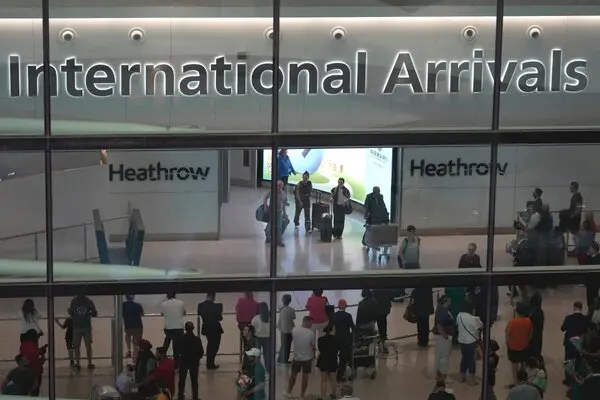Net migration to the UK significantly decreased in 2024, falling to 431,000 from 860,000 the previous year, based on the latest figures from the Office for National Statistics (ONS). This drop, the largest since the Covid-19 pandemic, highlights the impact of tougher immigration measures implemented by the UK government and gives a political boost to Prime Minister Keir Starmer. The ONS report notes that the decline is largely due to fewer arrivals on work and study visas, as well as an increase in emigration.
The UK government has introduced stricter immigration policies, including raising income thresholds for family visa applications, limiting dependents for student and care worker visas, and extending the time required for settlement. These changes were part of Starmer’s broader goal to regain control over the country’s borders.
The reduction in net migration has sparked mixed reactions. Interior Minister Yvette Cooper welcomed the 300,000 decrease since July, highlighting the return of nearly 30,000 failed asylum seekers. However, the opposition, particularly the Conservatives, argues that the reduction is mainly due to policies introduced by the previous government. Conservative leader Kemi Badenoch criticized Starmer for not supporting additional measures to reduce migration further. Former Home Secretary James Cleverly also stated that the current figures reflect the impact of the visa restrictions he set in motion.
Immigration remains a hotly debated issue, especially with the rise of the right-wing Reform UK party, which now leads in national polling with 29% support. Labour trails behind at 22%, while the Liberal Democrats and Conservatives hold 17% and 16% respectively, according to the latest YouGov survey.
Starmer’s tough stance on immigration has sparked internal criticism within his party, with some members unhappy about his shift in tone, particularly after his comments about Britain becoming an “island of strangers.” As the government looks to continue reducing migration, officials predict that further cuts of up to 100,000 migrants annually will be made by 2029.

